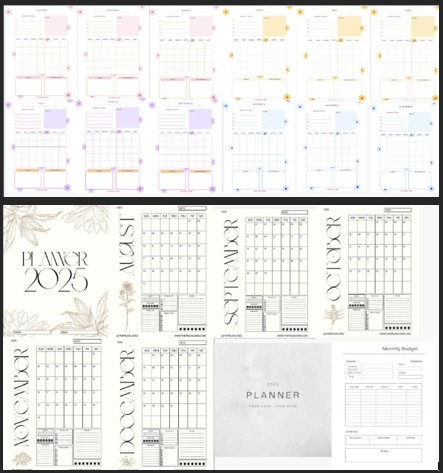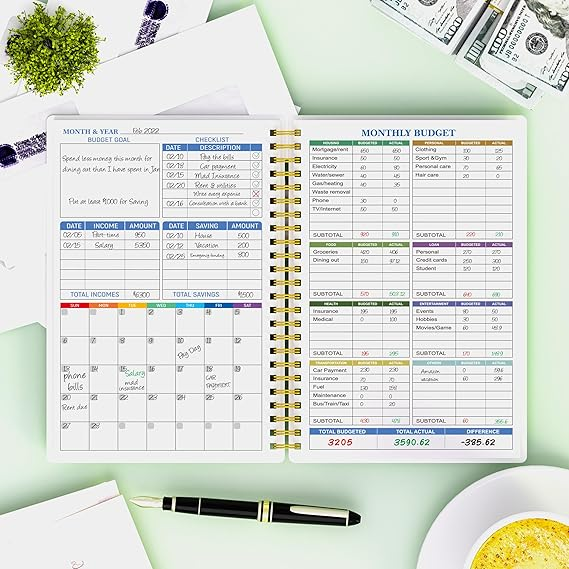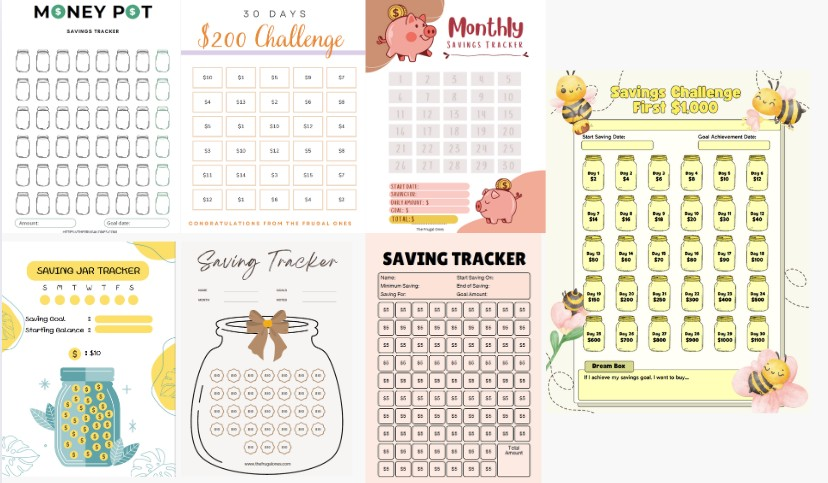Most people start a monthly budget planner with high hopes. But let’s be honest, it’s easy to fall behind once daily life gets busy. Missed bills, forgotten expenses, and the temptation of a last-minute takeout order can throw off even the most detailed plans. The truth is, the magic isn’t in the planner itself, but in the routines you set up to make it work. Here’s how to build habits that turn your budget into a tool that actually helps you take control of your money—with less stress.

Set a Weekly Money Check-In
Consistency is better than perfection when it comes to managing your budget. Weekly check-ins help you catch small issues before they snowball, keeping your budget honest and your goals within reach. A standing appointment with your budget—just 20 minutes a week—can mean the difference between feeling in control or lost in a sea of receipts.
Why make it weekly? It gives enough time for new transactions to clear while being frequent enough to adjust before a small slip becomes a bigger one.

How to Schedule and Structure Your Check-In
- Pick a time you’re least likely to skip. First thing Saturday morning, or right after Sunday coffee, for example.
- Minimize distractions. Put away your phone or mute notifications.
- Use a quick checklist: Review transactions, compare them to your budget, update any cash spends, and note irregular expenses.
- Bring in a partner if needed. If you share finances, a scheduled time helps avoid missed conversations.
Automate Bills and Savings
Automation is the quiet hero of reliable budgeting. It cuts down on forgotten payments, keeps late fees away, and helps build savings without effort. By automating the essentials, you let your planning work in the background, freeing up headspace for the things you love. Ramsey Solutions, Budgeting Apps Comparison 2025 is a great article on available apps.
Best Practices for Automation
- Set up auto-pay for all regular bills through your bank or the provider.
- Schedule automatic transfers into savings or investments right after you get paid.
- Mark your calendar to review automation every few months, to adjust for any changes in income or bills.
- Double-check for new recurring expenses during your weekly check-in, so you’re not caught off guard.
Track Daily Spending Without Hassle in your Monthly Budget Planner
If tracking expenses feels exhausting, you won’t stick with it. Short, simple routines work best. Whether you jot down expenses at the end of each day or use an app that links to your accounts, the goal is to see your spending patterns, not judge every cup of coffee.
Choosing Tools That Fit Your Lifestyle and Monthly Budget Planner
Some people love pen and paper, others need their phone to do the heavy lifting. There are plenty of options to fit different habits and needs. See this list of the best expense tracker apps for ideas—there’s something for everyone, from spreadsheet fans to those who want a monthly budget planner. The key is consistency, not complexity.

Review, Adjust, and Celebrate Each Month
A monthly review helps you see not only where the money went but also the progress you’re making. Looking back gives you the chance to steer back on course, set new goals, and, most importantly, celebrate what you’re getting right.
What to Look for in Your Monthly Budget Planner
- Overspending spots: Where did things go off track? What small tweaks would help?
- Savings progress: Did you hit your target, or does the goal need adjusting?
- Habit improvements: Which routines worked? Which ones felt like a chore?
- Celebrate wins: Did you avoid takeout for a whole week? Paid off a credit card? Write it down!
Setting up simple routines is what makes a monthly budget planner actually help. Weekly check-ins, automatic payments, daily tracking, and monthly reviews add up to real clarity and less stress. Start with one habit if that feels easier. Small, repeatable actions—done every week—are what turn a planner from a wish list into a real tool for change. The best part? It only gets easier with practice.

Financial Planning: Smart Ways to Organize Your Money [2025 Edition]
Simple Savings Challenges for Busy People with Tight Budgets
Quick Guide: How To Make a Beginner Meal Plan [2025]
Find More Free Time with an Organized Grocery List
Free Savings Tracker Downloads that Make Saving Money Simple
Free Savings Tracker Download that Makes Saving Money Simple
The Best Free Monthly Budget Planners for 2025 [Updated]
Download the Best Free Bill Tracker Forms [Updated for 2025]
Subscribe to The Frugal Ones and Get Free Budget Spreadsheets for Smarter Living














